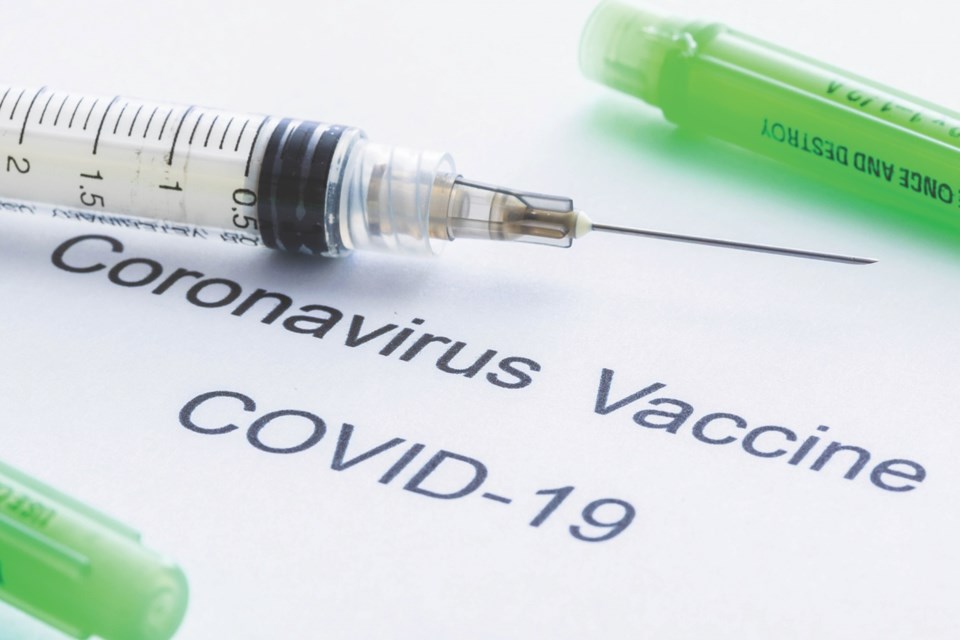Hempen Jewellers owner Tom Hempen said his business is abiding by public health protocols, and would continue to do so if a COVID-19 vaccine verification or passport system was put in place.
The Main Street Newmarket BIA chair said businesses are willing to follow whatever measures they have to in order to keep customers safe, including if that means verifying a person's vaccination status.
But as he manages his busy store, the idea of implementing a vaccine verification system alone is neither something Hempen said he intends to do — nor is he aware of any Main Street business planning for it.
"We have no control over it," Hempen said. "Everyone is quite willing to follow the lead of the two governments."
Vaccine verification and mandates have been debated in recent weeks, as people have debated requiring vaccinations for businesses or some public spaces. The federal government took a significant step Aug. 13, requiring it for the federal public service, commercial air travellers, interprovincial trains and large marine vessels.
But with no other requirements or verification system yet in place, no Newmarket business has yet to declare any willingness to implement an individualized system.
The provincial science table wrote last month that proof-of-vaccination infrastructure could help maintain reopening should COVID-19 cases spike in the future. A few businesses across the province are requiring vaccinations to access their services. Premier Doug Ford has indicated he will not introduce such a system, though has noted people can use the receipt they get after a COVID-19 vaccination where necessary.
The Canadian Chamber of Commerce has suggested a Canada-wide vaccine passport to make it easy to confirm vaccination status domestically and internationally. Newmarket Chamber of Commerce president and CEO Tracy Walter said the organization and other chambers would like to see a federal verification system, rather than put it on businesses to decide.
“We’re hearing lots of calls this may be required,” Walter said. “What we’re really asking for is to avoid a piecemeal approach, which will make it very difficult for individuals and employers."
Hempen said Main Street business are willing if such a system comes into place, and does not think it would harm them.
"I, as a business owner, am quite willing to do what's necessary," he said.
But no Newmarket businesses have yet shown willingness to take on the hurdles of implementing their own system. A group of tech CEOs pitched a digital verification system pilot to the Newmarket Economic Development Advisory Committee in June, suggesting businesses or communities might need to be more independent on verification.
ThinkON CEO Craig McLellan said the idea had no takers in Newmarket. He said there are issues with the province not having a system in place to give citizens easy access to that vaccination data digitally.
But he added the federal government requiring vaccination for international travel and its employees could change things.
"If the province considers similar policies, we will be able to go back to Newmarket with a viable solution to stand up quickly to help support businesses in the area," McLellan said.
Walter said the chamber does not yet have a position on how any verification system should be used. But she added it could be a tool to avoid future lockdowns.
“We just have to find ways to be able to avoid lockdowns and still be able to serve as businesses,” Walter said.
Vaughan labour and employment lawyer Arthur Zeilikman said there is a lot of unknowns around implementing vaccine verification in a workplace, whether for employees or customers. He said any such system, legislated or not, would have to be constitutionally sound.
He said organizations have an obligation for health and safety in the workplace, which COVID-19 affects, but must also consider privacy and human rights challenges.
“Employers shouldn’t jump the gun,” Zeilikman said. “If an employer will enforce some sort of policy, they will have to be reasonable in doing so. They have to not be unduly intrusive.”
He said an employee or a customer could protest such a policy on human rights grounds, seeking a medical or religious exemption.
He added privacy protections must also be considered. If an employee claims a medical exemption for not getting a vaccine, an employer cannot demand details.
How such policies will play out in court is uncertain.
“It is a bit nebulous at this point to ascertain, with great certainty, as to how it may apply,” Zeilikman said. “But there are likely to be challenges that arise.”
He noted there are different nuances for health and safety based on the business. Vaccine verification in health-care spaces is different than at a storefront.
Zeiliman said an overarching government policy on verification would be welcome.
“It will reduce litigation, so long as the policy suggested by the government is reasonable and constitutionally compliant,” Zeilikman said.
Hempen said the priority for businesses right now is on staying open and running.
"I'm looking forward to hopefully continuing to stay open and be able to provide our services," he said. "We'll do our part."


